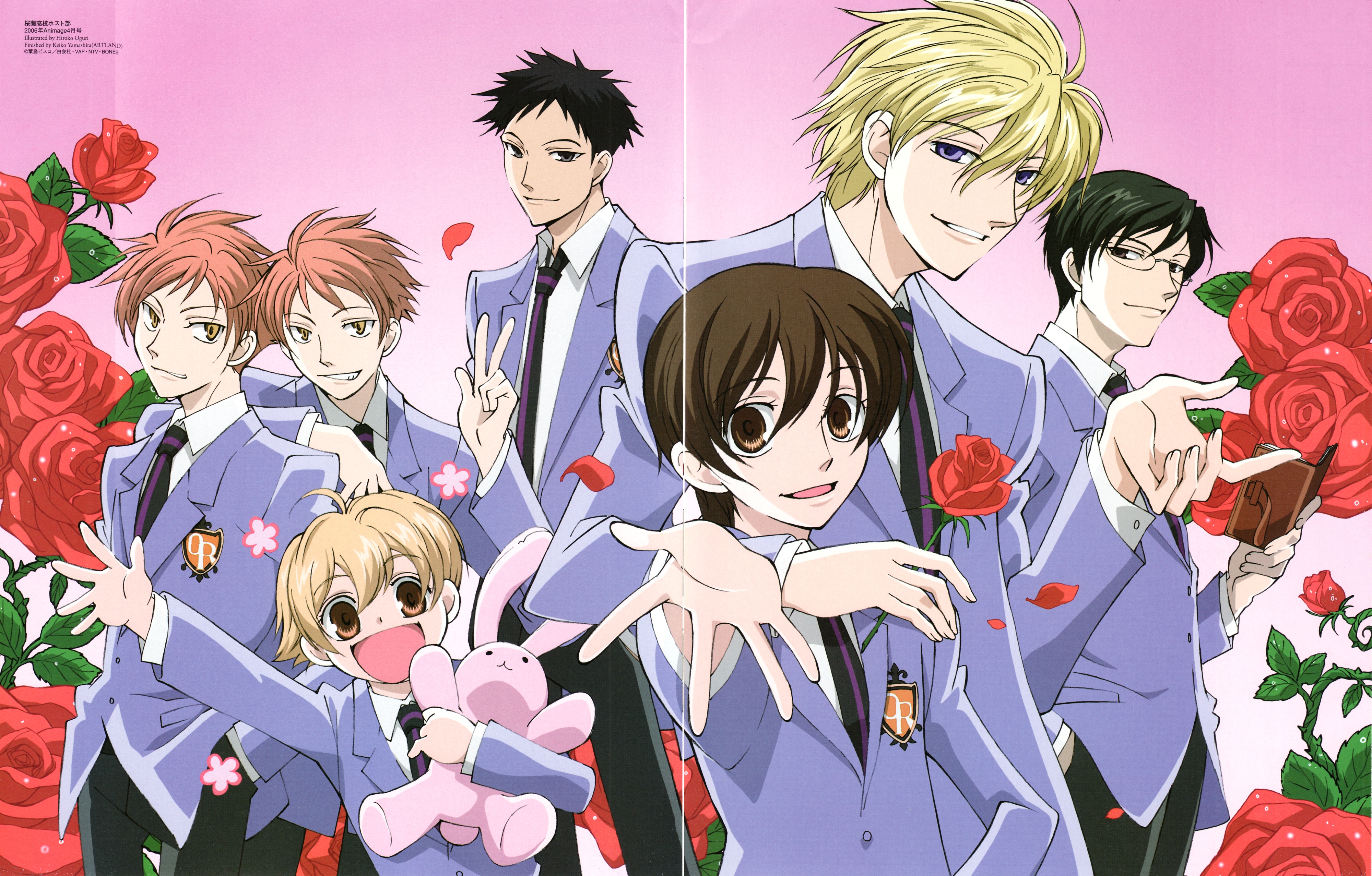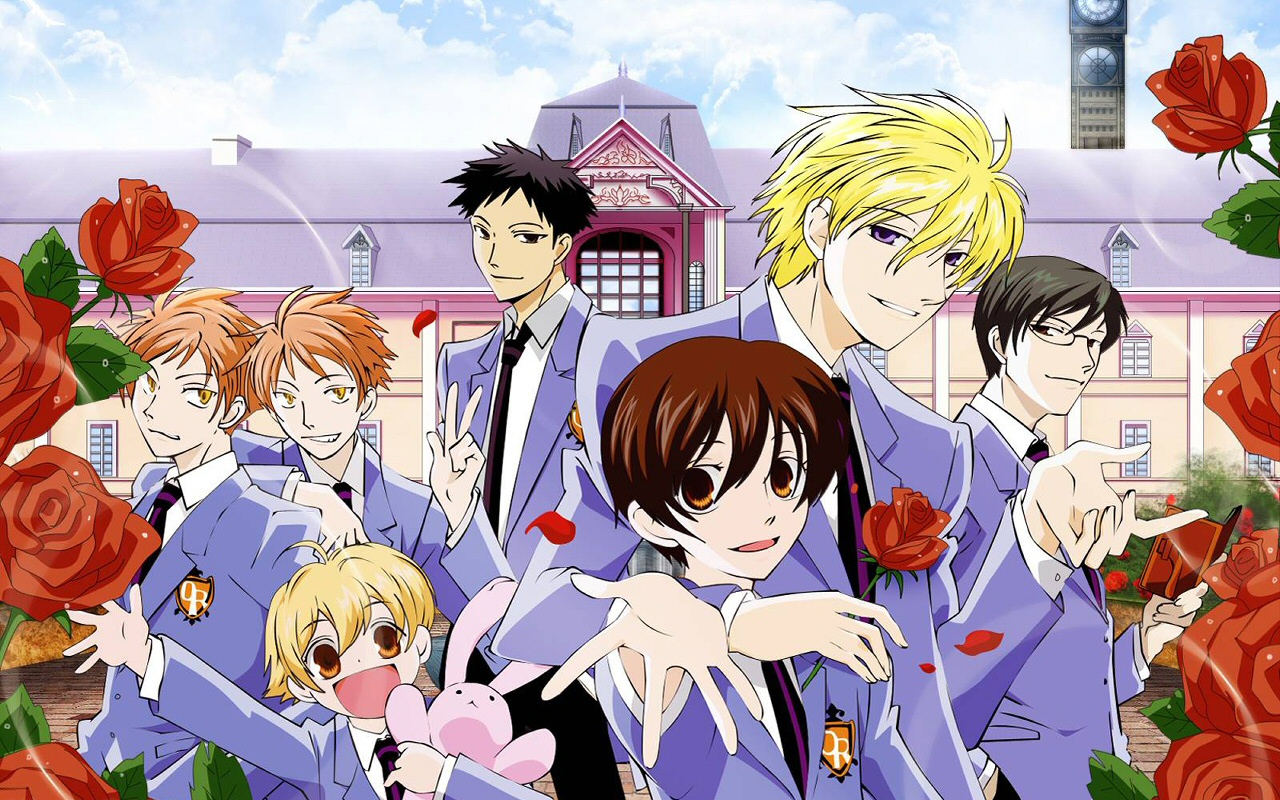Manga Host Club: Yo, what’s up, manga fans? Get ready to dive headfirst into the totally awesome, totally dramatic world of manga host clubs! We’re talking ridiculously good-looking guys, crazy plot twists, and enough drama to fill a whole season of your fave reality show. This ain’t your grandma’s shoujo manga; we’re exploring the evolution of this genre, the iconic character archetypes, and the wild narratives that keep us hooked.
From the sparkly-eyed princes to the brooding bad boys, we’ll break down the common tropes, analyze the character development (or lack thereof!), and even map out the crazy plot structures that make these stories so addictive. Think of it as the ultimate cheat sheet for understanding why host club manga are such a huge deal. Prepare for some serious fangirling (or fanboying!).
Popularity and Trends of “Manga Host Club”
The “manga host club” genre, a subgenre of shoujo manga, has experienced a significant rise in popularity, captivating readers with its blend of romance, comedy, and dramatic character interactions. This genre’s evolution reflects broader shifts in Japanese media’s portrayal of gender roles and relationships, showcasing a unique blend of fantasy and social commentary.
Evolution of the “Manga Host Club” Theme in Japanese Media
The concept of host clubs, while fictionalized in manga, draws inspiration from the real-life phenomenon of Japanese host clubs. Early portrayals in manga often focused on the glamorous aspects of the host profession, emphasizing the romantic ideals and the elaborate performances. However, more recent works have explored the complexities of the host club environment, delving into the motivations of both the hosts and their clients, revealing the darker sides and societal pressures often ignored in earlier representations.
Comparison of Host Club Portrayals in Different Manga Series
While the core concept remains consistent, different manga series offer diverse perspectives on host clubs. Some focus on the comedic aspects, presenting a lighthearted and often fantastical take on the interactions between hosts and their clients. Others delve into the more serious themes, exploring issues of social class, ambition, and the emotional toll of the profession. For example, a comparison between a series focusing on lighthearted romantic comedy and one focusing on the darker realities of the industry would reveal significant differences in tone, character development, and plot progression.
Key Demographic Trends Associated with “Manga Host Club” Themed Works
The popularity of “manga host club” themed works is primarily driven by a female readership, aligning with the shoujo manga demographic. However, the genre’s appeal extends beyond a specific age range, attracting readers who appreciate the romantic storylines, comedic elements, and complex character dynamics. The evolving storylines and themes continue to engage a wide range of readers, showcasing the genre’s adaptability and staying power.
Cultural Significance of Host Clubs in Japan and Their Representation in Manga
Host clubs hold a unique place in Japanese popular culture, representing a complex interplay of social dynamics and entertainment. Manga’s portrayal of these clubs offers a lens through which to examine societal attitudes towards gender, relationships, and consumerism. The often-idealized portrayal of hosts in manga can be interpreted as a reflection of certain societal expectations and desires, while simultaneously offering a critical commentary on the realities of this unique industry.
Character Archetypes in “Manga Host Club” Stories
Recurring character archetypes contribute significantly to the genre’s appeal. These archetypes, while sometimes stereotypical, provide familiar frameworks for readers to engage with the narrative, allowing for both predictable comfort and surprising subversions of expectations.
Common Character Archetypes in “Manga Host Club” Narratives
| Archetype | Description | Motivations | Relationships |
|---|---|---|---|
| The Charming Host | Naturally charismatic and skilled at captivating clients. | Financial success, personal fulfillment, possibly genuine connection with clients. | Complex relationships with fellow hosts, often competitive yet supportive. Intriguing relationships with clients, ranging from purely professional to emotionally charged. |
| The Aloof Beauty | Mysterious and seemingly unapproachable, yet possesses hidden depths. | Self-preservation, possibly a desire to avoid emotional entanglement. | Often attracts the attention of multiple characters, creating romantic tension. May form close bonds with a select few. |
| The Loyal Friend | Supportive and dependable, offering emotional grounding to other characters. | Friendship, loyalty, desire to see their friends succeed. | Acts as a confidant and anchor for the main characters, often providing comedic relief. |
| The Rival Host | Competitive and ambitious, vying for attention and success. | Personal ambition, desire to prove their worth. | Creates conflict and tension, but may ultimately form a grudging respect or even friendship with other hosts. |
Recurring Tropes and Stereotypes Associated with Characters
Common tropes include the “tsundere” character (initially cold but secretly affectionate), the “kuudere” (emotionally inexpressive), and the “dandere” (shy and quiet). While these archetypes provide familiar character dynamics, many series subvert or complicate these stereotypes, adding layers of complexity to their personalities and motivations. This allows for character development that resonates with readers, moving beyond simple tropes to portray characters with nuanced emotions and motivations.
Narrative Structures and Plot Devices
The narrative structures and plot devices employed in “manga host club” stories contribute significantly to their engaging nature. The variety of approaches ensures a diverse range of reading experiences.
Common Plot Devices in “Manga Host Club” Narratives

- Secret Identities: Characters may hide aspects of their lives or true personalities.
- Love Triangles/Polyamorous Relationships: Romantic entanglements add layers of complexity and conflict.
- Misunderstandings and Comedic Timing: Humor plays a crucial role in the narrative, often stemming from misinterpretations or unexpected events.
- Challenges and Competitions: Hosts may compete for clients’ attention or participate in various challenges.
Different Narrative Structures Employed in This Genre
- Episodic: Each chapter focuses on a self-contained story, often revolving around a particular client or event.
- Serialized: A continuous overarching plot unfolds across multiple chapters, with character arcs and relationships developing over time.
- Overarching Plot with Episodic Elements: A blend of both episodic and serialized elements, providing both immediate gratification and long-term narrative satisfaction.
Hypothetical Plotline for a New “Manga Host Club” Story
A new host club opens in a prestigious university town, attracting a diverse clientele. The main conflict arises from a clash between traditional host club values and the modern attitudes of the new generation of hosts. Character arcs might focus on a host struggling to balance his personal life with the demands of his profession, a client discovering unexpected feelings for a host, and the club owner facing challenges to maintain the club’s reputation and financial stability.
Understand how the union of 100 girlfriends manga can improve efficiency and productivity.
Contribution of Setting and Atmosphere to the Overall Narrative, Manga host club
The setting, often a lavish and elegant host club, contributes to the overall atmosphere of glamour and sophistication. The contrasting atmosphere between the public face of the club and the private lives of the hosts creates a sense of mystery and intrigue, drawing readers into the complex world depicted in the manga.
So, there you have it—a whirlwind tour of the wild and wonderful world of manga host clubs! From the historical context to the modern-day trends, we’ve uncovered the secrets behind their enduring popularity. Whether you’re a seasoned manga reader or just curious about the hype, hopefully, this deep dive has given you a fresh perspective on this captivating genre.
Now go forth and unleash your inner host club president (or maybe just a loyal customer)!

